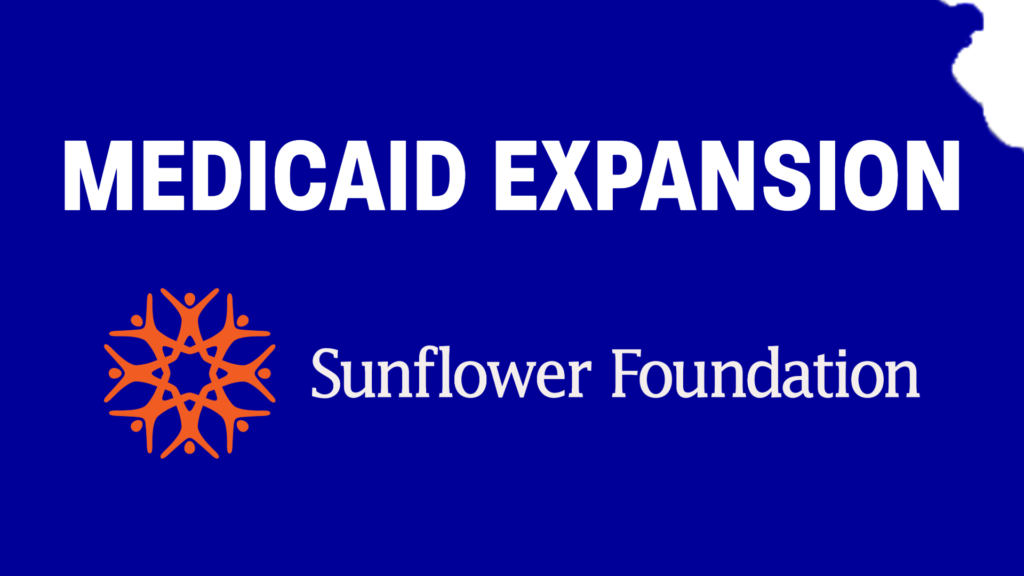
A recent statewide poll of small business owners, voters and Republican primary voters shows that most respondents favor Medicaid expansion in Kansas and believe doing so would increase health care access for thousands of low-income Kansans, spur job growth and boost the state’s economy.
Commissioned by Sunflower Foundation and conducted Nov. 10-20, 2023, by Public Opinion Strategies, the poll focused on gauging public opinion on a proposal to expand Medicaid in Kansas. If approved, the move would allow an estimated 150,000 additional Kansans to be covered under Medicaid, with the federal government paying 90% of the cost of expansion.
Results showed 68% of registered voters, 51% of Republican primary voters and 83% of small business owners favor expanding Medicaid in Kansas. Top reasons given by respondents for supporting the measure included how it would increase health care access to tens of thousands of the most vulnerable Kansans, bring more jobs to the state, stimulate the economy, and help sustain rural hospitals.
“A decade after the first state expanded Medicaid, it is clear the impacts of expansion go far beyond increasing access to health care,” said Billie Hall, Sunflower Foundation president and CEO. “This poll provides tangible evidence that expansion is critical to the future of small businesses in Kansas and their ability to recruit and retain the workforce needed to drive the state’s economy.”
In the wake of these new poll results, some leading voices from the state’s business, oil and gas, and agricultural sectors have weighed in on the health and economic benefits of Medicaid expansion in Kansas.
“A healthier workforce leads to a more productive business sector, which strengthens communities and fuels the state’s economy.” said Jason Cox, president of Cox Machine, Inc., a Wichita-based aerospace parts manufacturing company. “With competition for workers at an all-time high, expanding access to affordable health care is critical to recruiting and retaining a quality workforce.”
The poll also showed that Medicaid expansion could be a pivotal election issue, with 43% of Republican primary voters saying they would be more likely to vote for a primary candidate who supports expansion, compared to 31% who would vote for a candidate who opposes expansion and 26% who weren’t sure.
Other key findings focused on the impact Medicaid expansion would have on the state’s economy, workforce development, health care access and sustaining rural hospitals:
- When told Medicaid expansion could lead to as many as 10,000 new jobs for Kansas, 95% of small business owners said it was a convincing reason to support expansion.
- Among registered voters, 79% said the possibility expansion could lead to job growth was a convincing reason. For Republican primary voters, 69% said the statement was convincing.
- The belief that expanding Medicaid would help alleviate workforce issues and keep Kansas economically competitive was convincing for small business owners, with 89% saying it was convincing.
- The likelihood that not expanding Medicaid would lead to more rural hospitals closing, jobs leaving the state, and low-income Kansans suffering was among the most convincing reasons, with 81% of registered voters and 73% of Republican primary voters listing it as convincing.
- For registered voters, seeing that Medicaid expansion would allow health care access for an additional 100,000 of the poorest Kansans topped the list of most convincing reasons, with 82% saying it was convincing.
- The financial boost expansion would provide rural hospitals, helping them remain open and continue providing thousands of Kansans with nearby medical care, was the most convincing reason for Republican primary voters, with 78% listing it as convincing.
Access to quality health care is essential to economic development in rural Kansas communities, said John O. Farmer IV, president of oil and gas producer John O. Farmer, Inc., in Russell.
“The presence of hospitals in these communities is key to attracting workers and families. If Kansas does not expand Medicaid, it is inevitable that more rural hospitals will close, and families will leave our communities,” Farmer said. “We need to expand Medicaid to ensure that we can continue to provide quality health care in our rural communities.”
Access to health care is also critical to the health and well-being of agricultural workers, said Steve Baccus, longtime Ottawa County farmer and former president of Kansas Farm Bureau.
“Expanding Medicaid isn’t just about providing health care coverage; it’s about investing in the well-being of our communities. When we prioritize preventative care and access to essential services, we create a stronger, more resilient society,” Baccus said. “Our rural communities are often struggling to keep Main Street open and to continue to offer the necessary services to the surrounding agricultural enterprises. A community that can offer a total health care package has an advantage in maintaining a viable town.”
While rural communities are likely to feel the impact of expansion most acutely, the ripple effect will be felt across the state.
“Without Medicaid expansion in Kansas, the uninsured will continue to seek access to health care in the most expensive place – the emergency room – because it’s the one place they will not be turned away,” said Lisa Ginter, president and CEO of CommunityAmerica Credit Union, headquartered in Lenexa. “This will continue to increase costs for all Kansas taxpayers, particularly the business sector, which is heavily impacted by skyrocketing premiums that come with providing reliable insurance policies for our employees.”
The poll also gauged respondents’ support for Medicaid expansion after they were provided information about the impact it would have in Kansas. Support for the measure grew from 68% to 78% among registered voters and 51% to 62% among Republican primary voters. The number of small business owners who favored expansion remained the same at 83%.
Most respondents, including 77% of registered voters and 73% of Republican primary voters, believe the issue of Medicaid expansion should be decided by Kansas voters and not the Legislature.
The poll consisted of three key statewide audiences: 500 registered voters, an oversample of 516 Republican primary voters, and 107 small business owners.

